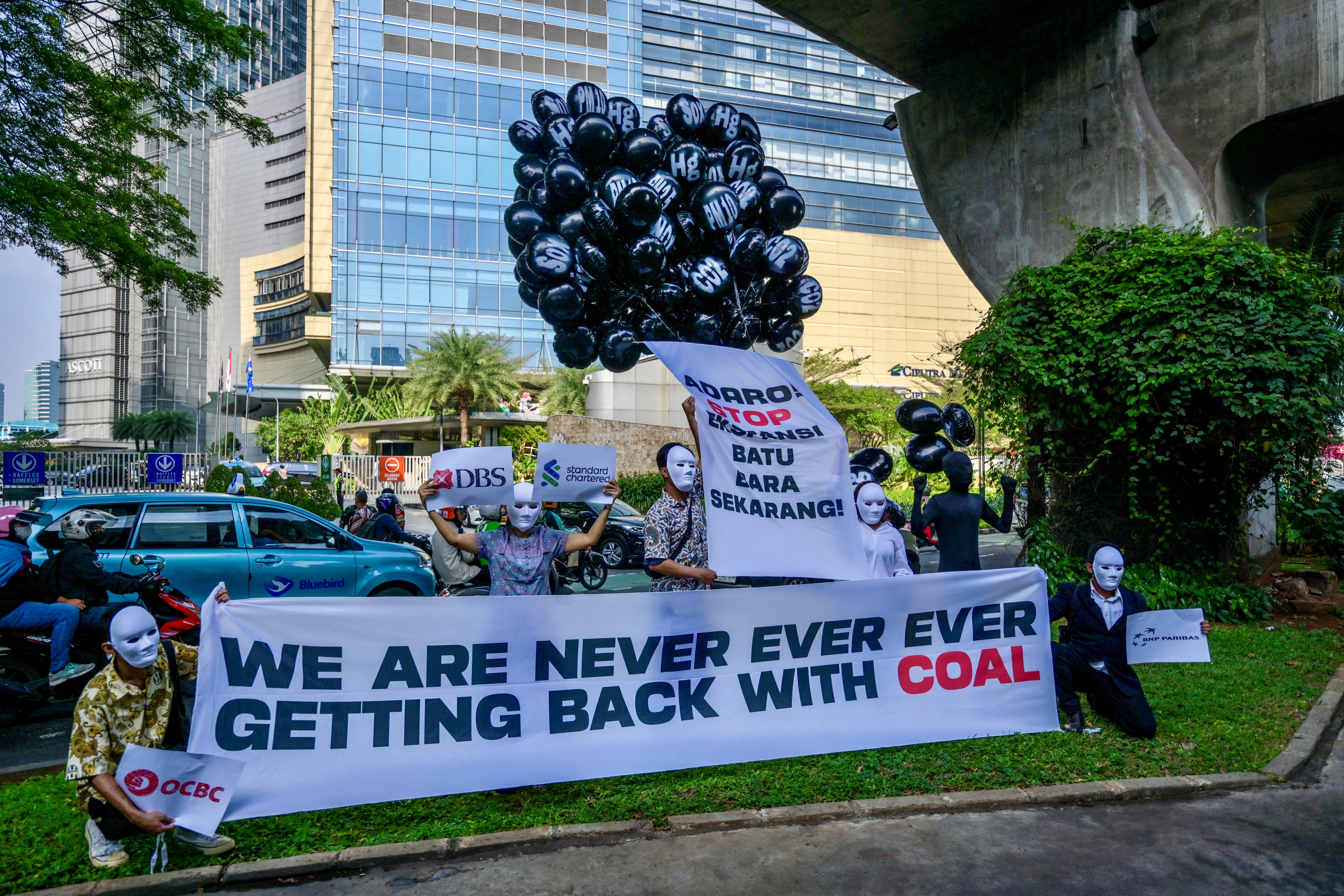
Environmental activists display banners and balloons labeled with dangerous gases produced from the use of coal as they hold a protest during a general meeting of coal miner Adaro’s shareholders in Jakarta on May 15, 2024. Agence France-Presse
JAKARTA — A new law allowing the Indonesian government to grant permits to religious organisations to operate mines has outraged environmentalists in the world’s leading nickel producer.
Outgoing President Joko Widodo, popularly known as Jokowi, signed a decree on Thursday, opening the path for religious groups to manage concessions to “improve social welfare”.
But a leading Indonesian environmental watchdog, Mining Advocacy Network (JATAM) slammed the regulation as the government’s attempt to keep and control natural resources for the benefit of elites.
READ: Indonesia revokes more than 2,000 mining and plantation permits
“We saw this as a transaction between Jokowi and religious groups,” JATAM’s national coordinator Melky Nahar told AFP Monday. “We read this as a gratitude from Jokowi to religious groups for supporting him during his two terms”.
“There’s also a possibility that Jokowi is trying to maintain political influence… even after his term has ends,” he said.
The presidential spokesman did not immediately respond to AFP when contacted for comment.
Indonesia has vast mining resources spread over its thousands of islands, with nickel as one of the main minerals.
READ: Indonesia to propose limited free trade deal with US on critical minerals
It has the world’s largest nickel reserves at roughly 21 million tonnes, accounting for over a fifth of the global total.
Nickel is a crucial component in batteries used for electric vehicles.
Indonesia’s largest Muslim organisation, Nahdlatul Ulama, which has more than 95 million members, said it was up for the task.
“Nahdlatul Ulama is ready with our skilled human resources, complete organisation structure, and strong business network,” its chairman, Yahya Cholil Staquf said Monday in a post on their website.
But Nahar said religious groups were not suitable entities to operate mines.
“Mining is a fragile economic model,… It needs a lot of capital and technology,” he said.
“If these religious groups are serious about improving their members’ welfare, why not join sustainable business?”